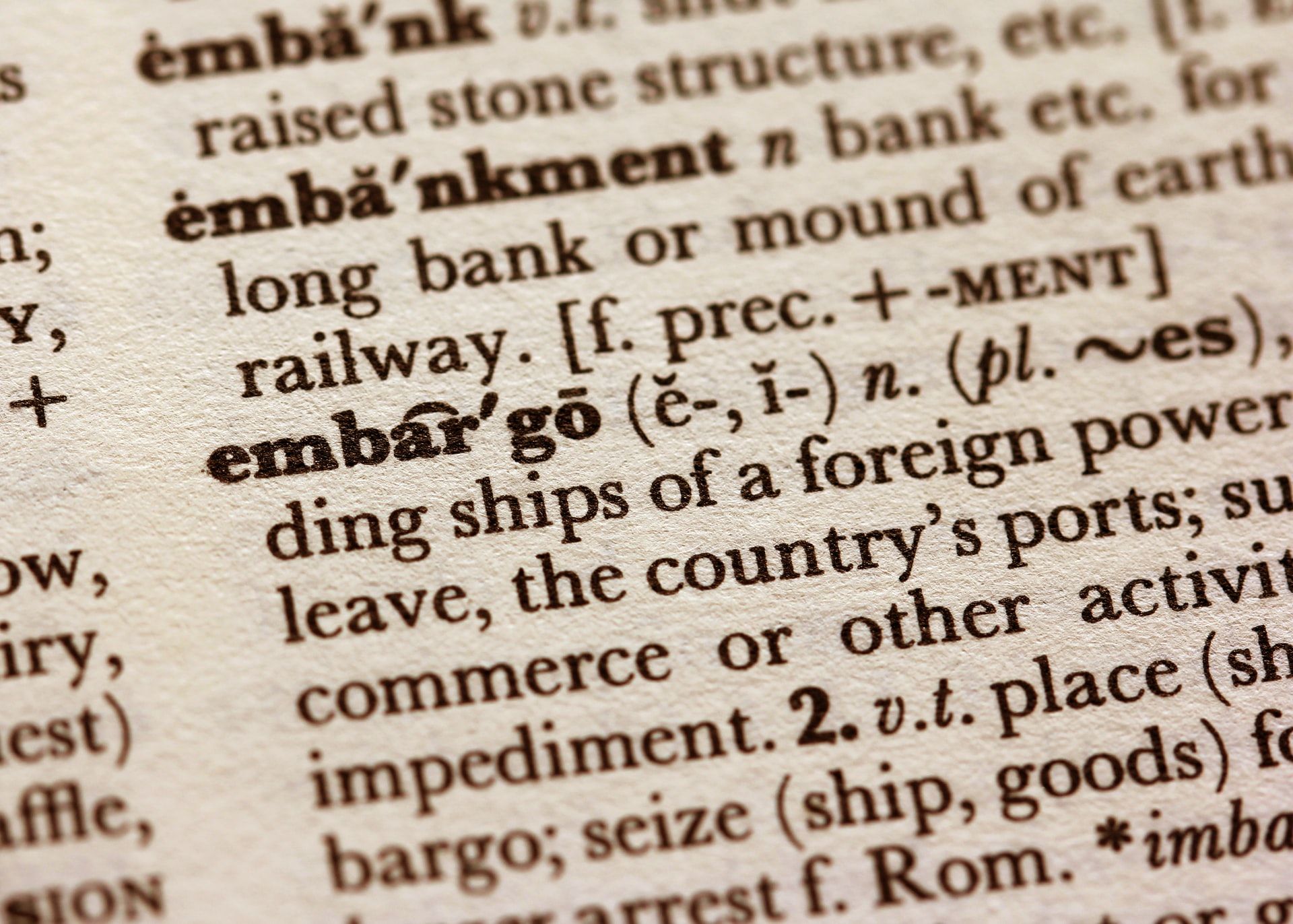We know that "words" is not really a topic that grabs hold of you and screams, "excitement!" at the top of its lungs. But words are critical (essential! fundamental! crucial! indispensable! necessary!)—and not just because the size of your vocabulary is correlated with your financial success.
Here at Brainscape, we think vocabulary is important, and so today we’re doing our best to convince you that it’s true. And, we want to introduce you to the most effective ways learn—and remember—new words.
Spoiler alert: the best way happens to be our own digital flashcard app. We've reimagined the classic flashcard to create the world's most effective tool for remembering tons of new information. You can make your own flashcards with the vocabulary you'd like to learn, or use one of our preloaded collections like our Vocab Builder flashcards.
But if you're still not sure why you should care about vocabulary, here are our top 5 reasons why you would study vocabulary followed by 5 more tips on how to do it.
Check out: 'How to sound smarter in conversations (and actually BE smarter)'
Why study vocabulary?

“Anyone who knew the word slattern was worth cultivating as a friend.” — Alan Bradley
1. Look smart (and forestall embarrassment)
In the course of your lifetime, you’re bound to run into countless advanced, difficult, or esoteric words. They may come up in a job interview, in an academic setting like a test or homework, at work among colleagues or business partners, or just in a casual conversation.
In these situations, none of us want to look stupid, and that might be the best argument for studying vocabulary. Whatever the situation, being able to critically evaluate, understand, and respond to complex and difficult words is a big asset—and a great reason to study up now.
2. Understand the lexicon of history
Language changes over time.
Consider the English language: it’s spoken, to a greater or lesser degree, by more than 1.5 billion people worldwide and is considered to include more than 1 million words—perhaps many more. A 2010 study estimated that the number of English words grows by some 8,500 per year (depending on how this is calculated).
With that sort of linguistic spread, it’s inevitable that meaning changes a great deal over time. Learning vocabulary—and perhaps dabbling in a bit of etymology as well—can help you make sense of history.
You don’t have to go very far back, even: many books written in the 1950s and 60s take for granted a broad vernacular, much of which sounds alien to our ears. Perhaps this is a reflection of the fact that a generation ago, the study of classical literature was a must for any educated person. Today, this type of classical education is largely reserved for literature students.
3. Read the classics
Pick up Shakespeare, Dickens, or any classic literature. What you will find is a language expressed very differently from ours. More specifically, you will find countless words that have fallen out of common usage in the modern world.
In Shakespeare, for example, wild hawks are haggards, hemlock is referred to as kecksy, and a theory is a theorick. There are whole dictionaries simply devoted to unlocking the vernacular of late 16th- and early 17th-century England that is used by Shakespeare.
If you want to read history or classical literature, and to understand it, you must make a study of vocabulary. And if you’re worried about an upcoming test like the SAT, GRE, or LSAT, studying the vocabulary of the classics is a great way to boost your scores: advanced and uncommon words used in classical literature are quite common on these tests.
[Check out Brainscape's SAT Prep flashcards or GRE Vocab flashcards for great adaptive practice online or in our mobile app.]
4. Unlock the roots of meaning
One great reason to study vocabulary is to understand the roots from which meaning is built. Once you understand the building blocks of language, vocabulary becomes easier to understand.
Consider a beautiful word I learned recently: distributary. Like its sister word, tributary, the term refers to rivers and streams. However, tributary refers to a portion of the river or stream that flows into a larger body of water, like a larger river or lake, before reaching the ocean. A distributary is the opposite: a stream or river that diverges from the main river or stream as it nears the ocean, lake, or larger river, and which drains directly into said larger body of water.
This is the power of vocabulary: instead of an unwieldy sentence, we can use a simple, single term that conveys more precise meaning. The term distributary is particularly elegant in that it builds on a commonly understood term (tributary), using a commonly understood prefix (dis- or distribute). The meaning is coded into the word itself.
5. Widen your mental horizons
“A man with a scant vocabulary will almost certainly be a weak thinker. The richer and more copious one's vocabulary and the greater one's awareness of fine distinctions and subtle nuances of meaning, the more fertile and precise is likely to be one's thinking. Knowledge of things and knowledge of the words for them grow together. If you do not know the words, you can hardly know the thing.” — Henry Hazlitt
The language we can use determines what we can think about.
That’s a big claim, but it’s true: the words, phrases, and ideas that we have at our fingertips define the boundaries of our expression. This is then reflected back on our thinking: if we can’t express something, it’s very hard to conceive of it clearly in the first place.
This intersection of language and thought is what worries many cultural anthropologists concerned about indigenous languages, which are going extinct rapidly around the world. Each of these languages, they say, is an expression of the place where it came about: the result of long interaction between people, landscape, weather, animals, and other features of a given community.
Let’s look at one example. In the Hawaiian language, two fascinating terms—wao akua and we kanaka—define the boundaries of community. Roughly translated, woa kanaka means “realm of humans.” Wao aka literally means “realm of the gods,” but carries much more meaning. It defines a location to which humans travel or use only rarely and with a clear purpose, and where they don’t long linger once their purpose is done. Linguistically, the term is interwoven with Hawaiian religious and spiritual beliefs, land-use practices, and more.
How to study vocabulary effectively

Okay great, so learning vocabulary is important (Imperative! Paramount! Vital!). But how can you do it in a way that doesn't put you to sleep faster than an old rerun of MASH?
Here are 5 secrets to mastering vocab fast. You can use this to broaden your English vocabulary or even to use when you're learning a foreign language.
1. Give new vocab words context in your personal daily life
It seems like a simple enough thing to do, but context for your words doesn’t just come automatically. You will need to actively search out links with your life that apply to each word. For example, when I was studying for the GRE, I remembered "odious" by using it every time I came across a raccoon going through the trash can outside my building.
Similarly, rather than thinking of “madre” in Spanish just as “mother,” associate the word with your own mom. What do you think of when you think of your mom? Consider her face and her name, sure, but also her perfume or her favorite foods. If you can, make the associations in your new language as well. Not only will you practice more words, but they will also be connected to a strong image in your mind, which makes them more likely to stick.
2. Make flashcards to practice new vocab
This tried and true trick is a classic for a reason. The repetitive nature of flashcards gives you exposure to the words over and over until they come naturally. Nowadays, digital flashcards like the ones we offer at Brainscape make this process even more efficient.
Brainscape is based on the science of learning to help you remember new content efficiently. You will get instant feedback on your progress and the app will analyze your knowledge of each word so that you are exposed more to the vocab giving you trouble. You can make your own flashcards based on the words you'd like to learn... or you can check out the pre-loaded vocabulary decks like in our Vocabulary Builder collection.
3. Use mnemonics (the sillier, the better)
Think of a phrase that reminds you of the meaning of the vocab word and use it to create a mental picture. Often times, the stupider the phrase, the easier it is to remember. You may feel silly making up these phrases to remind you of what a word means, but they really stay in your brain. For example, I used to use "Big Elephants Can Always Use Small Elephants" to remember how to spell "Because" (when, you know, I was young).
I don't know many words in Russian, but I will never forget pivo (pee-vuh), the word for beer. A friend taught me the word using the mnemonic “Every time I drink a lot of beer, I have to pee vuh-ry much.” Simple enough (and yes, silly), but a strong association that stuck.
Just be sure not to rely too heavily on these techniques, because – as we've written about – mnemonic devices aren't always efficient for memorization.
4. Pay attention to words used in culturally relevant and natural conversation
This is especially relevant if you're learning a new language—having a conversation with a native speaker will teach you tons of new words.
But you can also do this with English. Reading widely in a number of different genres, watching videos of individuals who are experts in other areas, and listening to podcasts are all great ways to learn new words in English as well. The more you expose yourself to complex, unusual language, the more you'll remember it.
5. Make it fun to use your new words
This is a very personal aspect of learning vocabulary, but perhaps the most important. You will learn vocabulary so much faster if your brain gets a “reward” for doing the work.
You need to pick a way to make learning fun that works well for you personally. Maybe you are really competitive and want to dominate your grandmother at Scrabble. Or maybe you just like to confuse people at the bar. Just keep in mind that learning new words can be fun. When you keep the reward in mind, you are going to master the vocab much faster.
Vocabulary in this article
Here's a quick list of the vocab you can add on Brainscape that comes directly from this article:
- Ado: noun. bustle, fuss, trouble, bother.
- Etymology: noun. The origin and historical development of a linguistic form as shown by determining its basic elements, earliest known use, and changes in form and meaning, tracing its transmission from one language to another, identifying its cognates in other languages, and reconstructing its ancestral form where possible.
- Esoteric: adjective. Of or relating to that which is known by a restricted number of people.
- Forestall: verb. To delay, hinder, or prevent by taking precautionary measures beforehand.
- Lexicon: noun. A stock of terms used in a particular profession, subject, or style; a vocabulary.
- Vernacular: noun. The everyday language spoken by a people.
Vocabulary is vital—so learn it!
Learning vocabulary, like learning another language, can literally open our minds to new ideas, new ways of thinking, and entirely new conceptions of the world. The five simple strategies presented here for how to study vocabulary are designed to help you acquire new vocab faster.
Each of them can be effective. In the end though, these are all simply extensions of one important part of language learning: practice. So keep on practicing that vocab in as many different contexts as possible. You will be surprised at how fast you pick up new words for good.
[Want more like this? Check out more tips on how to memorize vocab]
References
Cambridge Coaching. (2022). How to use root words to learn vocabulary. https://blog.cambridgecoaching.com/how-to-use-root-words-to-learn-vocabulary
Crystal, D., & Crystal, B. (2022). Explore Shakespeare’s works like never before. Shakespeare’s Words. https://www.shakespeareswords.com/
Merriam-Webster Dictionary. (2024). Odious. In Merriam-Webster Dictionary. https://www.merriam-webster.com/dictionary/odious
Michel, J., Shen, Y. K., Aiden, A. P., Veres, A., Gray, M. K., Pickett, J. P., Hoiberg, D., Clancy, D., Norvig, P., Orwant, J., Pinker, S., Nowak, M. A., & Aiden, E. L. (2011). Quantitative analysis of culture using millions of digitized books. Science, 331(6014), 176–182. https://doi.org/10.1126/science.1199644
Prude, H. (2024, March 21). Read the essay: Take a deep, deep dive into classical literature. Patrick Henry College. https://www.phc.edu/learnphc/why-read-classical-literature
Shea, A. (2010, March 11). Vocabulary Size. New York Times. https://www.nytimes.com/2010/03/14/magazine/14FOB-onlanguage-t.html
Stanovich, K. E. (1993). Does reading make you smarter? Literacy and the development of verbal intelligence. Advances in Child Development and Behavior, 133–180. https://doi.org/10.1016/s0065-2407(08)60302-x
Van Den Broek, G. S. E., Wesseling, E., Huijssen, L., Lettink, M., & Van Gog, T. (2022). Vocabulary learning during Reading: Benefits of contextual inferences versus retrieval opportunities. Cognitive Science, 46(4). https://doi.org/10.1111/cogs.13135
